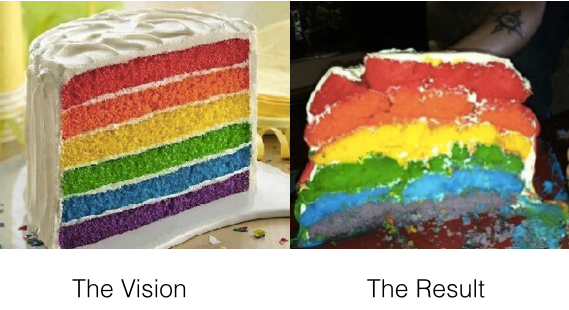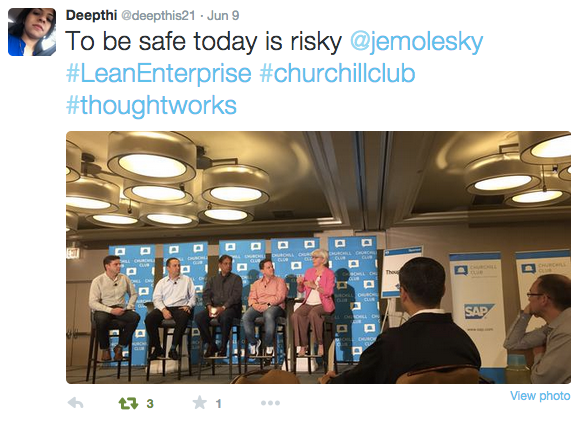For any leader in business one of the most challenge aspects (and a question I get asked a lot) is how to manage failure — especially in large organizations?
Typically, workers within organizations fear how executives will respond to a lack of success. On the other side, executives cannot seem to get the message through to workers to embrace experimentation and be bolder. A paradox of purpose, expectation, and culture that ultimately damages both parties’ ambitions of improvement.
Innovation is an exploratory event. There is no guarantee of achieving the desired outcome. Any work we undertake inevitably results in either success or failure. But failure is not the opposite of success, it is the step prior to achieving success. Both results are part of the learning process.

When undertaking any new initiative we all stumble along the way and those that follow also struggle and fall. Put simply: if you’re not failing, you’re not really trying. As Joanne always says: playing it safe is actually risky for your long term business success.

It’s hard to fail but what is even worse is to sit there and never attempt anything new, risky or unknown.
The result of failing is never one moment of oversight or a sole individual’s actions. It is a series of events that leads to failure. Yet cultures that seek to punish people for mistakes or find one neck to choke actually achieve a worse outcome. People freeze; hold positions while the world, customer needs, and the competitive environment rapidly evolve around them.
Companies are always trying to find ways to dispel this inertia to change. At our recent event at the Churchill Club, Jody Mulkey, CTO at Ticketmaster, shared how they had created an award for “Epic fails” to encourage more experimentation and risk-taking in their business.
One of my favorite culture hacks was introduced to me by Tom Sulston while I was at the Agile/Lean Europe conference in Berlin, and giving a presentation on ‘Mental Models for Agile Adoption’ with Jo Cranford in 2011.
When you experience failure the best way to make it taste better is eating up some Failure Cake!

How Failure Cake Works:
- Someone identifies an exception in the system.
- A person or team accepts responsibility for the exception and takes ownership for the resulting failure.
- The person (or team) that accepts ownership for the exception buys cake for the team.
- The person brings the cake back to the team area and calls all parties together.
- The team eats the cake while discussing the exception and how they can develop options for future mitigation or improvement. Remember the retrospective prime directive!
“Regardless of what we discover, we understand and truly believe that everyone did the best job they could, given what they knew at the time, their skills and abilities, the resources available, and the situation at hand.”
It’s not the failure that we celebrate, its the discussion and learning that follows.
Plus, how can you be angry with one individual or team if they’ve just bought you cake!
Taking risks still carries responsibility and accountability. By defining boundaries in terms of scope, effort, investment, and risk level you take you can create scenarios that are acceptable and recoverable should your hypothesis turn out to be flawed. This is what we term ‘safe-to-fail’ experiments in Lean Enterprise: How High Performance Organisation Innovation At Scale.
Next time you or your team fails, use it as an opportunity to improve, build knowledge and trust within your team. Go buy a cake. Maybe even invite another team along to the party and share your success and failures together. Our biggest advances are rarely achieved alone; it’s the shared lessons that help us make progress.
Remember, it’s a privilege to taste failure! Demonstrate the behavior you wish to see in others and act your way to a new way of working. Make a cultural impact to stamp out stigma and encourage others to experiment their way to new heights… all while eating fantastic tasty cake along the way!
References
Cakes kindly inspired from http://www.cakewrecks.com

